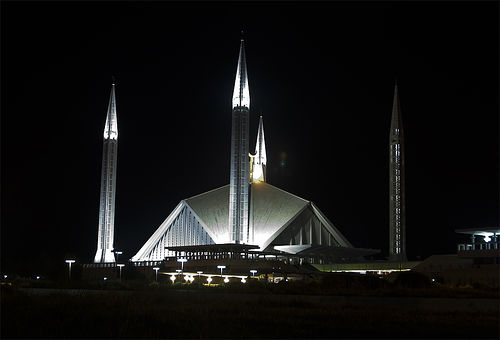Prime Minister Syed Yusuf Raza Gilani Saturday urged the world community to help shift the three million Afghan refugees residing in Pakistan back to Afghanistan, to stop illegal cross border movement and prevent spread of the crippling Polio disease.
“They need to go back ... the relief centres have to be in Afghanistan,” Gilani told a press conference along with Prime Minister of United Kingdom David Cameron, Nigerian President Goodluck Jonathan, Canadian Prime Minister Stephen Harper and Australian Prime Minister Julia Gillard.
The Australian Prime Minister had invited a select group of Heads of State and Governments from the countries where Polio was still prevalent, or who were funding campaigns for the eradication of the crippling disease.
Prime Minister Gilani said the world seems to have forgotten the plight of millions of Afghans who were living in shanty make-shift homes and camps in Pakistan, years after the withdrawal of the troops of United Soviet Socialist Republic from Afghanistan as decades of continuing conflict in their country had deterred them to return.
Prime Minister Gilani said it was hard for Pakistan to check the illegal movement across the over 2000 km long border with Afghanistan and added that he was preventing his country from eradication of the disease. He said Pakistan had managed to eliminate the disease, but regretted that it resurfaced in the past seven years with 132 new cases reported. “This situation is totally unacceptable. We have launched a National Emergency Action Plan for Polio eradication and to interrupt transmission of the virus in Pakistan by the end of 2011,” he said.
Gilani attributed the resurfacing of Polio to the ongoing cross-border movement and difficulties in administrating Polio drops to the children living in camps and villages in the inhospitable terrain along the Pakistan-Afghanistan border.
Over 40,000 people cross the Pak-Afghan border daily. Polio remains endemic in four countries, three of which are members of the Commonwealth - India, Nigeria, and Pakistan, besides Afghanistan.
Gilani also pointed to the influence of the extremist elements in these areas who were preventing administration of the vaccine. He said government of Pakistan was seeking help of the religious scholars to convince the “fanatics” about the importance of vaccine. He said Pakistan was launching a three-day campaign every three months to administer anti-polio drops to 33 million children across the country.
He said the government was committed to the cause and had designated Aseefa Bhutto Zardari as the Goodwill Ambassador, as she was the first child to have received the drops from her mother late Prime Minister Benazir Bhutto, when the campaign was launched for the first time in Pakistan.
Gilani informed the other leaders that a Polio Monitoring Cell at the PM Secretariat has been set up, with similar setups at provincial, district and local levels were working to mobilize community.
He said it was being done in close coordination with the UNICEF and WHO. “We hope to see positive outcome by December this year,” he said and pointed that the task ahead was daunting. “But we remain determined to eradicate this virus and protect every child in Pakistan from the scourge of Polio.”
The Australian government announced a commitment of 50 million Australian Dollars to the Global Polio Eradication Initiative (GPEI).
The Nigerian government pledged an increase from 2011 of a planned $17 million to an annual contribution of $30 million starting in 2012. The Gates Foundation pledged an additional $40 million to GPEI for the remainder of 2011.
British Prime Minister David Cameron said his country had provided 540 million Pounds Sterling so far to fight the disease and said 8 million people today were able to walk around without any problem only because they got the vaccine on time. “With the availability of the vaccine, there is no excuse in eliminating it,” he said and warned “if we fail to get rid of polio, we run the risk of seeing it spread back to countries from which it has been eradicated.”
Cameron said Pakistan was the single largest aid recipient of the United Kingdom and the UK government was working closely with it and Afghanistan to stop the terrorists on either side of the Pak-Afghan border.
Australian Prime Minister Julia Gillard said Australia has long term commitment in Afghanistan and will stay there in some form till the end of decade as it does not want the country become a centre of terrorism.
Prime Minister Julia Gillard said the new funding of 50 million Australian Dollars, over four years to the Global Polio Eradication Initiative (GPEI) would help purchase vaccines, monitor outbreaks, and respond when and where needed.
She said Australia’s support will help take the final steps to achieve worldwide polio eradication and applauded the leadership shown by India, Nigeria, and Pakistan in their ongoing efforts to eradicate polio.
Canadian Prime Minister Stephen Harper said his country would commit further funds for polio surveillance and immunizations and said its funding in Afghanistan has helped make 85 per cent population safe from Polio.
Bill Gates joined the leaders via video to announce a new US$40 million contribution to the Global Polio Eradication Initiative (GPEI) on behalf of the Gates Foundation and in support of the Commonwealth commitments.
Significant progress has been made over the past two decades to reduce the number of polio cases by 99 per cent since the GPEI was launched in 1988. Increasing routine immunization around the world has helped reduce the number of child deaths from 12.4 million in 1990 to 7.6 million in 2010.
Source---MSN.Pk


















